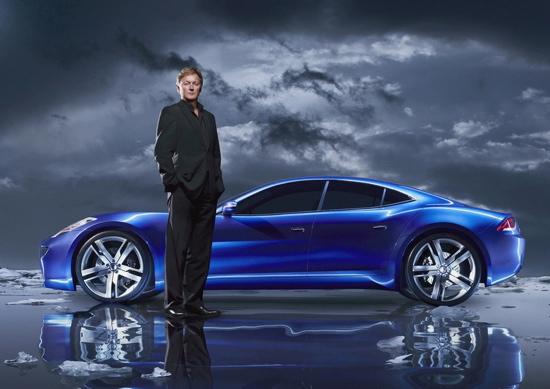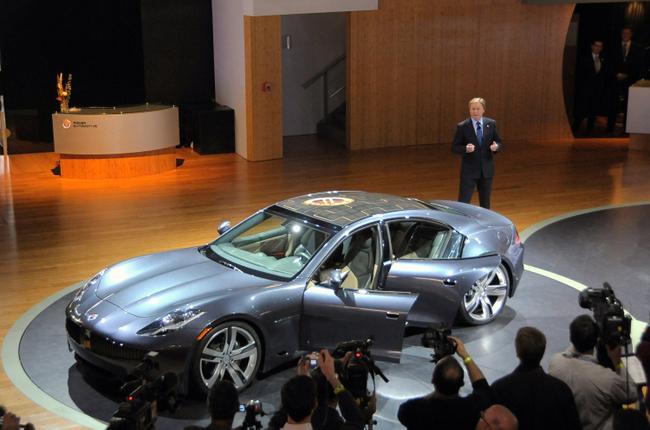Consider the somewhat inspiring and slightly amusing news that car manufacturer Fisker Automobile, whose founder also designed cars for Aston Martin and BMW, has unveiled one of the most environmentally friendly luxury cars for this year’s Geneva Motor show, aptly named the Fisker Karma. Yet another appropriation of an incredibly complex idea in Indian thought which has a history spanning several millennia, but aside from that minor inconvenience and the common joke, “My karma just ran over your dogma,” it is quite interesting to see how the Fisker Karma represents another step toward “responsible luxury.” This may just be the ultimate ideal and fantasy of high society: to enjoy luxury – itself by definition an excess – responsibly, a kind of “Middle Way” that nevertheless leans ever so slightly toward the extravagant!
As Fisker said, “talk is easy” when it comes to building good electric cars, but his company is one of the few that have actually applied the principles of car making and environmental friendliness and united them. So it is with theory and practice in spirituality. It is nice to see karma – vague a word as it is (I have no idea if Fisker had the Hindu or Buddhist interpretation in mind, and I am quite sure he does not care) – to be associated with something positive: that is, responsibility, moral vision (or at least a sense of accountability), and a sense of being ethically proactive. It has been some time now, but I do remember more than several occasions where others argued that karma was a theory based on and leading to a fatalistic, passive attitude to life. Thanks to the idea of karma, some saw Buddhism as negative and pessimistic, a denying religion that fostered only hatred and apathy for the world. Such accusations are polemics against Buddhism that still persist in some circles today. Yet it is clear that Buddhism is a religion of high culture and transcendent tastes, with a philosophy and path of practice that is deeply moral, intellectual and compassionate. And in a sense the use of karma by Fisker is actually correct indeed! – it does indeed mean responsibility, and it does mean that our power to change the course of our future is not an illusion. It is something real, and it is affirmed by the Buddha himself.
Of course, my past karma is something I cannot undo. This is true. I was born into a certain society and into a certain family, and yes, there is nothing I can do to change this. But one cannot condemn the idea of karma on this one situation. In fact, the concept of responsibility for future actions is inherent in karma – be it responsible enjoyment luxury (like your electric Aston Martin), responsible eating (one may revel in the exquisite greatness of Chinese cuisine but abhor shark fin soup), or simply responsible speech. Our future is conditioned in some senses, but in many senses it is also in our hands. That is the optimistic vision that the Buddha himself undoubtedly had; very few would deny that he allowed no room for free will, and in fact he intensified it in his philosophy by making karma an ethical force, based on intentions rather than actions (Anguttara Nikaya III, 415). So it is encouraging that even in the business world, the word “karma” is taking on a very positive (and surprisingly accurate) meaning indeed: that of responsibility, of taking the initiative to do good while making what everyone (including temples and monasteries) needs: money!
Perhaps the Fisker Karma, in its attempt to unite decadence with accountability, is worth admiring to a degree. Too bad I don’t have 85,000 euros.

















